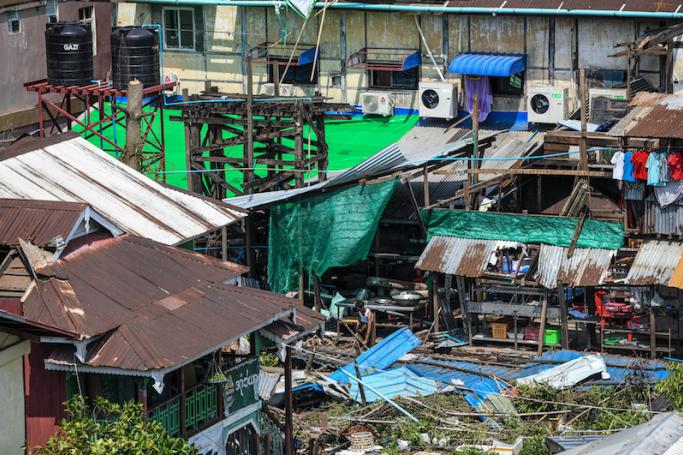Two weeks after Cyclone Mocha hit western Myanmar safe shelter remains a key priority for cyclone-affected people who have been left without a roof over their head as the monsoon approaches, says the UN OCHA in their latest press release.
In addition, OCHA expresses concern that while the humanitarian aid effort is picking up pace, more supplies and increased access are needed.
Cyclone Mocha has exposed significant safety and security challenges for cyclone affected communities. To date, shelter and other relief items have been distributed to more than 63,000 people, OCHA reports.
More than 230,000 people have received food assistance but household food reserves are dwindling, and communities are having difficulty buying food due to price rises and crop damage. Loss of agricultural inputs and livestock is a growing problem.
The cyclone has created an education emergency with approximately 80 per cent of schools and educational infrastructure reportedly sustaining damage ahead of the start of the new school term. Work is underway to reinstate Temporary Learning Spaces (TLSs), disseminate learning kits to children, and restore schools and learning centers to operation.
While humanitarians continue to ramp up support where they have authorizations and supplies, so far it has only been possible to reach a fraction of the 1.6 million people identified for assistance in the $333 million Flash Appeal launched last week.
Wider access for distributions is urgently needed, along with permission to transport humanitarian supplies from in-country warehouses and into Myanmar from other countries. Detailed plans for the transport and distribution of supplies have been shared and are pending approval.
Pledges of additional funding from generous donors have started arriving, but much more is needed to adequately support vulnerable people and ensure prompt distributions of critical supplies.
Two weeks have passed since Cyclone Mocha struck Myanmar the humanitarian response is gathering pace but aid agencies still require more supplies, expanded access and additional funds to distribute assistance at-scale. Needs are enormous across all communities. The consequences of the cyclone reach far beyond the physical destruction of houses and public infrastructure, with a range of safety risks now also threatening the well-being of the affected population. These risks include the movement of unexploded ordnance (UXOs) in flooded areas, instances of sexual and gender-based violence, loss of civil documentation, looting, extortion, and robbery. Such risks pose a direct threat to affected communities, potentially exacerbating negative coping mechanisms such as high interest borrowing and children begging due to the lack of job opportunities of their parents. This situation increases the likelihood of child labor, exploitation, and abuse.
The cyclone's impact has eroded community support systems among affected populations. Reports from partners on the ground indicate that parents are struggling to adequately care for their children while they are rebuilding their damaged homes or are seeking employment to sustain their families. Of particular concern is the situation faced by displaced communities, that are currently enduring overcrowded living conditions that lack privacy, sanitation, and proper lighting in many areas. These conditions pose the risk of sexual abuse and harassment, particularly targeting women and adolescent girls. Adding to the gravity of the situation is the destruction or damage to most of the Women and Girls’ Centers in the affected areas.
Despite ongoing access challenges, humanitarian partners are ensuring that field observations continue in order to gain a comprehensive understanding of the cyclone's impact, especially among vulnerable groups. Simultaneously, those who have access are intensifying their response efforts, delivering critical and lifesaving assistance to affected communities in the Rakhine, Chin, Magway, Sagaing, and Kachin.












